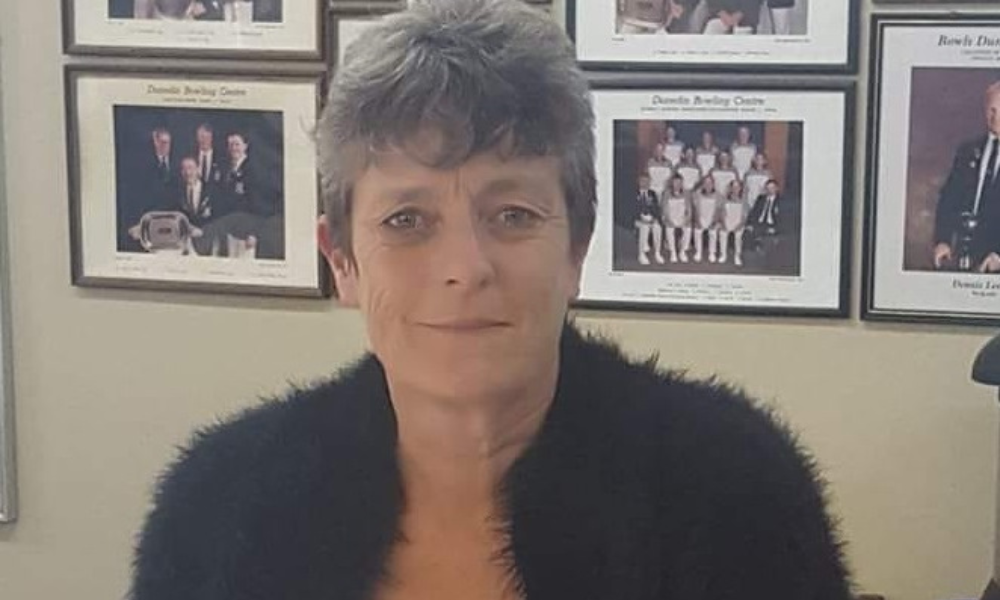Homeowner shares harrowing ordeal

A Dunedin woman who applied to her bank to top up her mortgage multiple times has finally received the tick of approval.
The senior support worker, who originally had a mortgage of $62,000 first applied directly to her bank for a home loan top-up of $50,000, which coincided with changes under the Credit Contracts and Consumer Finance Act (CCCFA), introduced on December 1, 2021.
Kim Anderson-Robb (pictured above) first made headlines in January 2022, when the New Zealand Herald published her story about her inability to increase her home loan for urgent repairs for her Wakari home, believed to be due to a small spending spree at discount retailers.
Earlier this year, in what Anderson-Robb estimated was her fifth attempt, she was approved for a mortgage top-up of $27,000.
The CCCFA has since been modified, with further changes introduced from May 4 removing discretionary expenses from affordability testing. Anderson-Robb believes it was this easing, along with a threat to change banks, that eventually got her application over the line.
Anderson-Robb told NZ Adviser that she had initially tried to borrow an extra $50,000 to use for urgent rewiring, along with repairs to her deck and bathroom. Previous to January 2022, she said she had tried “about three times” to apply for the top-up directly with her bank.
“We’d sort of just given up … we thought we would just have to live with the fact and hope that the house doesn’t burn down (because there would be no insurance),” Anderson-Robb said.
Anderson-Robb said she had “never missed a mortgage payment” or applied for a mortgage holiday, and that any debt was paid off by the due date.
Upon becoming a solo mother, Anderson-Robb joined her bank in 2004, on the basis that it was the only bank that would grant her finance for the required amount of $55,000, which she said meant that she was a loyal customer in return.
Her bank, which NZ Adviser agreed not to name, declined the top-up three times which Anderson-Robb said she believed was due to her age (noting she and her husband had reached 50 years), followed by one-off shopping trips to Kmart and The Warehouse prior to Christmas.
“Kmart had huge sales on, and we out kitted my kitchen (everyday things) … everything I bought was what I needed,” she said.
Anderson-Robb noted that she had been saving, and that she still had around $600 in her bank account upon returning from the trip.
After a light in her home blew and an electrician told her that the wiring was unsafe, Anderson-Robb said she then reapplied to her bank to top up her mortgage for fourth time.
Noting that the “scrutinising was horrible”, Anderson-Robb said the bank looked at her spending from Kmart and The Warehouse, as well as spending for things such as sandwiches and clean water purchased by her husband whilst on his way to work out of town.
“It was a birthday and we’d been out for tea with friends … we [were] scrutinised on that,” Anderson-Robb said. “We were told on no uncertain terms that those one-off spends that we had done had to be put into our monthly entertainment spending.”
Following feedback from banks, lenders and a growing number of borrowers, Minister of Commerce and Consumer Affairs David Clarke announced changes to the CCCFA in March 2022, stating that there was “no need to inquire about current living expenses from recent bank transactions” as part of future living expenses breakdowns.
In June 2022, Anderson-Robb said she applied again, only to receive yet another decline from her bank. She understood the refusal was due to her having a Q Card, which she said hadn’t been used for 10 months and provided funds to draw on for emergencies.
Ironically, she said that at the time, her bank was sending her notifications offering her a credit card.
In November 2022, Anderson-Robb said she applied to her bank again, at which point she said she was questioned all over again and “would hang up in tears”.
Final victory sees $27,000 loan approved
Earlier this year, in what is estimated to be around the fifth attempt, Anderson-Robb said she sent an email to her bank, stating that she wanted “a yes or no answer”, threatening to go to another bank if the application was declined.
Four days’ later, she received a phone call from her original banking manager, who she said knew her financial history and offered to look at her application. This time, the one question from the bank was around a $25 direct debit fee (annual card fee) in relation to keeping the Q Card, which was quickly resolved.
“She said ‘when do you want to come and sign the papers’ … I think the only reason why I got that loan approved is because I threatened to move to another bank,” Anderson-Robb said.
Noting that a mortgage adviser had previously advised her to take a certain amount out of the bank each week in cash so the spending couldn’t be tracked, Anderson-Robb acknowledged this was bad advice, as the bank would query it.
“That sort of advice isn’t helpful … realistically a mortgage adviser should be advising over the next three months where spending can be cut back,” she said.
In a follow-up to this story, NZ Adviser will speak to a mortgage adviser about the lessons and opportunities to help borrowers in similar situations.
Do you have any thoughts on this story? Share your thoughts in the comments section below.



